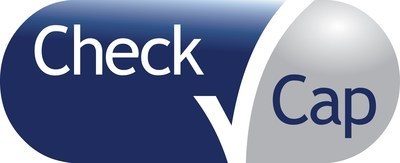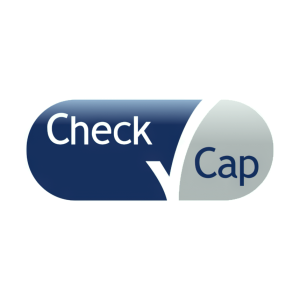Check-Cap Receives FDA IDE Approval for Pivotal Study of C-Scan®
Check-Cap (NASDAQ: CHEK) announced FDA approval for its Investigational Device Exemption (IDE), allowing the initiation of a pivotal study for its revolutionary C-Scan® colorectal cancer screening test. This patient-friendly, preparation-free method targets individuals at average risk who are poor candidates for traditional colonoscopy. The study aims to assess C-Scan's safety and performance, with plans to enroll 250 patients across clinical sites in Israel. The FDA also granted Breakthrough Device Designation for C-Scan, emphasizing its potential in addressing unmet needs for CRC screening.
- FDA approval for Investigational Device Exemption (IDE) allows pivotal study commencement.
- C-Scan offers a non-invasive, preparation-free alternative for colorectal cancer screening.
- Breakthrough Device Designation received, highlighting C-Scan's significance in cancer prevention.
- None.
ISFIYA, Israel, March 15, 2021 /PRNewswire/ -- Check-Cap Ltd. (the "Company" or "Check-Cap") (NASDAQ: CHEK), (NASDAQ: CHEKZ), a clinical stage medical diagnostics company advancing the development of C-Scan® , the first and only patient-friendly, preparation-free, screening test to detect polyps before they may transform into colorectal cancer (CRC), today announced that the U.S. Food and Drug Administration (FDA) has approved the Company's Investigational Device Exemption (IDE) application, permitting Check-Cap to begin a pivotal study of C-Scan in the U.S. C-Scan is intended for candidates who are at average-risk for CRC and who are poor candidates for colonoscopy or decline colonoscopy, or who had an incomplete optical colonoscopy. The pivotal study will evaluate safety and performance of C-Scan as well as subject compliance with C-Scan.

"The IDE approval is a significant milestone for Check-Cap. Now with IDE in hand, we aim to enter the last phase of demonstrating the clinical potential of C-Scan in the U.S., with the ultimate goal of commercialization in this important market," said Alex Ovadia, Chief Executive Officer of Check-Cap. "We are in active discussions with a number of clinical sites as part of our preparations to begin the pivotal study in late 2021. In parallel, as previously communicated, we will be continuing to optimize C-Scan's performance and patient experience through additional clinical data collection at Israeli sites. To this end, we are gearing up to initiate a study in Israel at more than 10 clinical sites to enroll up to 250 average risk patients."
Mr. Ovadia continued, "We are also pleased to announce that the FDA has approved the Company's Breakthrough Device Designation for the intended use of identifying candidates within the average risk population who are at elevated risk for polyps equal to or larger than 1 cm and are poor candidates for colonoscopy. We believe that this highlights the FDA's recognition of C-Scan as an alternative method to address the significant unmet need for patient-friendly CRC screening, in particular since it enables the detection of colorectal polyps before they may turn into cancer.
Additionally, updated CRC screening guidelines from the American College of Gastroenterology (ACG) published on March 2021, recommend colon capsules as an option for CRC screening in people who are either unwilling or unable to undergo a colonoscopy or Fecal Immunochemical Test (FIT). As screening for precancerous polyps provides an opportunity for early intervention and cancer prevention, C-Scan could be considered as an option for those individuals, if approved."
To learn more about Check-Cap and C-Scan, visit the company's website at www.check-cap.com.
About Colorectal Cancer
Every year, nearly 935,000 deaths occur as a result of colorectal cancer (CRC) and more than 1.9 million new cases are identified. CRC typically begins as precancerous polyps or abnormal growths in the colon or rectum, which can be present for up to 10 years before developing into invasive cancer. As a result, screening for polyps before they turn into cancer is the most direct method for CRC prevention. Despite evidence that standard screening through colonoscopy can prevent CRC, adherence remains low due to the required bowel preparation, invasiveness, and in some communities, limited access. Most patient-friendly CRC screening tests currently available, or poised to enter the market, such as fecal or liquid biopsy tests, are primarily designed to detect cancer and demonstrate low sensitivity in detecting pre-cancerous polyps. As such, they do not necessarily provide patients with the time window to pre-empt the disease. There is therefore an unmet medical need for non-invasive screening methods that can detect precancerous polyps.
About Check-Cap
Check-Cap is a clinical stage medical diagnostics company aiming to redefine colorectal cancer (CRC) screening through the introduction of C-Scan®, the first and only patient-friendly preparation-free screening test to detect polyps before they may transform into colorectal cancer to enable early intervention and cancer prevention. The Company's disruptive capsule-based screening technology aims to significantly increase screening adherence worldwide and help millions of people to stay healthy through preventive CRC screening. C-Scan uses an ultra-low dose X-ray capsule, an integrated positioning, control and recording system, as well as proprietary software to generate a 3D map of the inner lining of the colon as it travels naturally along the gastrointestinal tract. C-Scan is non-invasive and requires no sedation. Unlike other capsule technologies, it requires no bowel preparation, allowing the patients to continue their daily routine with no interruption. C-Scan is not intended to replace colonoscopy. A positive C-Scan result should be followed by colonoscopy.
Legal Notice Regarding Forward-Looking Statements
This press release contains "forward-looking statements." Words such as "may," "should," "could," "would," "predicts," "potential," "continue," "expects," "anticipates," "future," "intends," "plans," "believes," "estimates," and similar expressions, as well as statements in future tense, often signify forward-looking statements. Forward-looking statements should not be read as a guarantee of future performance or results and may not be accurate indications of when such performance or results will be achieved. Forward-looking statements are based on information that the Company has when those statements are made or management's good faith belief as of that time with respect to future events, and are subject to risks and uncertainties that could cause actual performance or results to differ materially from those expressed in or suggested by the forward-looking statements. For a discussion of these and other risks that could cause such differences and that may affect the realization of forward-looking statements, please refer to the "Forward-looking Statements" and "Risk Factors" in the Company's Annual Report on Form 20-F for the year ended December 31, 2019 and other filings with the Securities and Exchange Commission (SEC). Investors and security holders are urged to read these documents free of charge on the SEC's web site at http://www.sec.gov. The Company assumes no obligation to publicly update or revise its forward-looking statements as a result of new information, future events or otherwise.
Investor Contacts
Irina Koffler
LifeSci Advisors, LLC
646.970.4681
ikoffler@lifesciadvisors.com
Meirav Gomeh-Bauer
LifeSci Advisors, LLC
+972(0)-54-476-4979
Meirav@lifesciadvisors.com
Media Contact
Mónica Rouco Molina
Senior Account Executive
LifeSci Communications
mroucomolina@lifescicomms.com
![]() View original content:http://www.prnewswire.com/news-releases/check-cap-receives-fda-ide-approval-for-pivotal-study-of-c-scan-301247147.html
View original content:http://www.prnewswire.com/news-releases/check-cap-receives-fda-ide-approval-for-pivotal-study-of-c-scan-301247147.html
SOURCE Check-Cap Ltd.
FAQ
What is Check-Cap's C-Scan and its significance?
When did Check-Cap receive FDA approval for C-Scan?
What is the goal of the pivotal study for C-Scan?
How many patients will be enrolled in the pivotal study of C-Scan?







